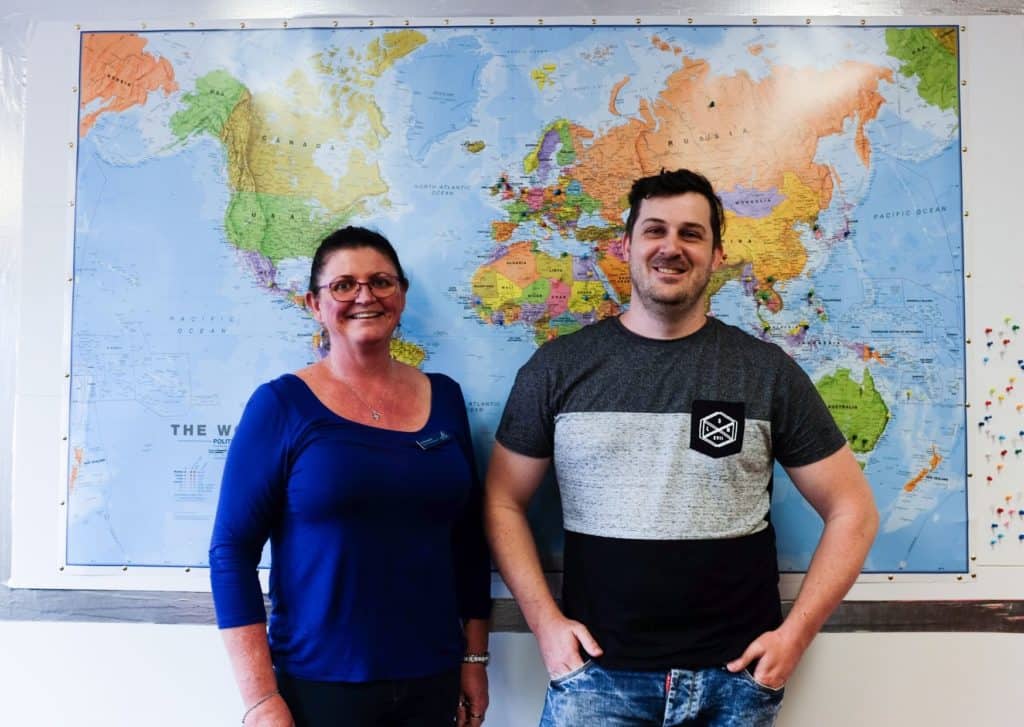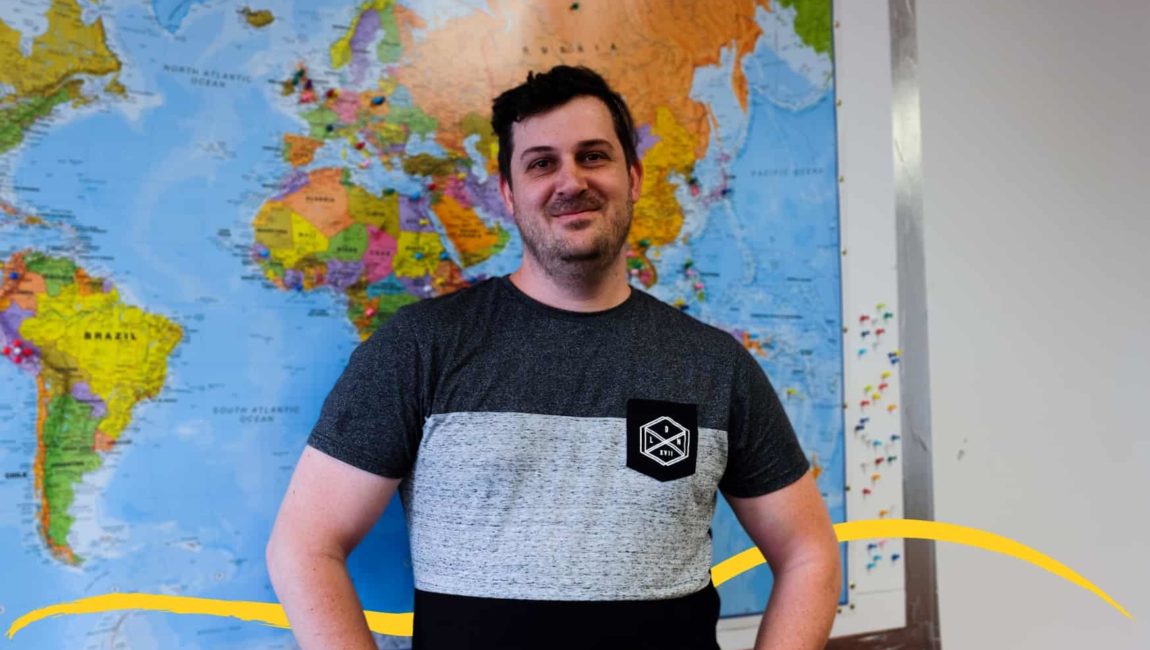How One Disability Qualification Led To Three Rewarding Jobs.
Mitchell Barber was working in an unfulfilling job for years, but this motivated him to make the change towards a rewarding career path. After gaining a qualification in Certificate III Individual Support (Disability) at Centacare Employment and Training, he landed not one, but three jobs in the disability sector.
For many people, a job is a means of achieving financial stability and earning enough to get by day-to-day. That was not the case for Mitchell Barber. For years, he had been delivering groceries in the service industry. Even though it provided employment security, Mitchell found a lack of meaning at work and was left feeling wanting more.
‘I was trapped in unfulfilling work for years, delivering groceries. I knew I hadn’t lived up to my potential.’ Mitchell explained.
While it was clear that something needed to change, Mitchell was unsure which employment pathway would provide a sense of accomplishment, which he craved for in a workplace. It was not until Mitchell reconnected with a mentor, who introduced him to the idea of working in the disability sector, that he began exploring the possibility of providing support to people with disability.
The Journey To Employment
Mitchell’s job search in the disability sector began with no experience. After countless attempts applying for employment opportunities, he got to know Ed Mavis, an engagement leader at Identity WA. Ed encouraged Mitchell to qualify for a Certificate III in Individual Support (Disability) at Centacare Employment and Training. Although he had a busy work schedule, he found the course suited well with his career plan.
“I liked that with Centacare you study four days a week and get it done within four months.” Mitchell said.
In September 2019, he commenced his studies with Centacare Employment and Training. During the initial few weeks into the course, he faced a few challenges when it came to balancing his work schedule with studies.
“As I started the course, I was working nights driving a van, delivering groceries. I could not afford to quit my job.”
“Often, I wouldn’t get home until almost midnight. Including study and commute, these were 15-16 hours per day. It was a physically demanding job, lifting many heavy crates and driving long distances.”
“The first few weeks I wasn’t sure I could make it through the course on the amount of sleep I was getting. I remember the teacher, Gary Lane, asking me at one point in week 2 or 3 if I was OK as I was close to passing out in class.”
“Centacare (Individual Support courses) ran Monday to Thursday, I toughed it out as best I could and caught up on sleep on Friday. I would sleep 12 hours that night!” Mitchell recalls.
Despite the challenges, Mitchell was determined to achieve a qualification that would lead to employment in the disability sector and his relentless dedication to his studies never wavered.
His trainer, Elizabeth (Liz) Fawcett commented positively; “Mitchell had a lot of self-doubts when he started. He pushed himself out of his comfort zone on many occasions and developed assertiveness throughout the course. He was a lovely class member, befriended all his classmates and has a real cheeky sense of humour! The individuals Mitchell works with will love him! I wish him all the best in his new career”

Mitchell not only gained the essential skills and knowledge while studying at Centacare, but he also enjoyed his experience with trainers and his classmates.
Mitchell recalled his experience of studying at Centacare, “The teachers were really good, especially Liz Fawcett. There really is no replacement for face to face training in the classroom, it’s very engaging compared to an online course.”
“There were students in the class from different cultural backgrounds. English was not their first language in many cases and they were struggling in the early weeks. I was impressed with the level of help the lecturers gave them.” He continued.
“The whole group (Mitchell’s classmates) really bonded over the time together and it felt like a break up when we parted. Even Liz seemed emotional on the last week. I am even keeping in touch with some of the students.”
Liz further added, “One of the things I really love about my job is watching people’s growth – their personal growth, returning to studies and improvement in English and new knowledge being applied. Working in the disability sector can be quite complex and at times challenging, although the rewards can be so fulfilling.”
Success after Centacare
Mitchell was placed with the Identitywa for work experience as part of his course. This work placement allowed Mitchell to secure his first employment in the disability sector. “I knew that a more fulfilling job for me meant being able to connect with other people. It wasn’t until I was on the placement that I knew for sure I had made the right decision.” Mitchell said.
“It does seem that having the qualification makes a big difference to employment prospects. I tried to apply for many disability jobs last year with no experience and I couldn’t even get close.”
“I now have two jobs, one with Identitywa and one with the Autism Association. Landing employment with Autism Association is quite difficult so I am quite proud of that one. It does mean that I am dealing with some of the most challenging behaviours possible straight away. I am throwing myself in the deep end, hoping I will learn faster.”
Recently Mitchell managed to secure another position in a support role for a private client.
Mitchell Barber went from feeling stuck in an unfulfilling job to securing three rewarding roles that create a profound impact on the lives of others. All it took was his determination to step out of his comfort zone and make the small steps forward to a career transition. As for Mitchell’s future plans, he is considering to upskill and further his education with a traineeship in social training.

